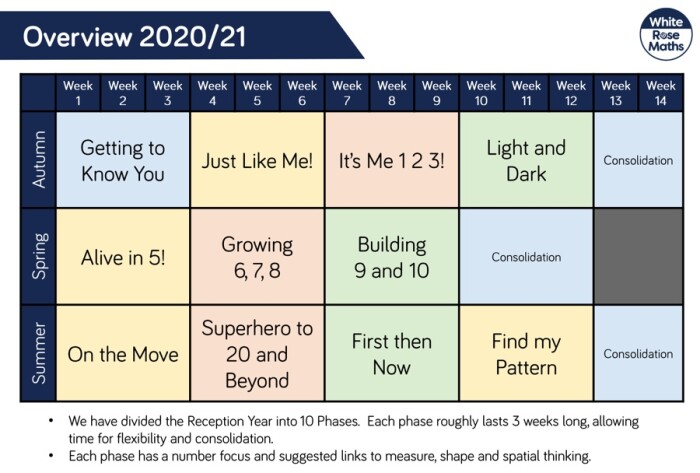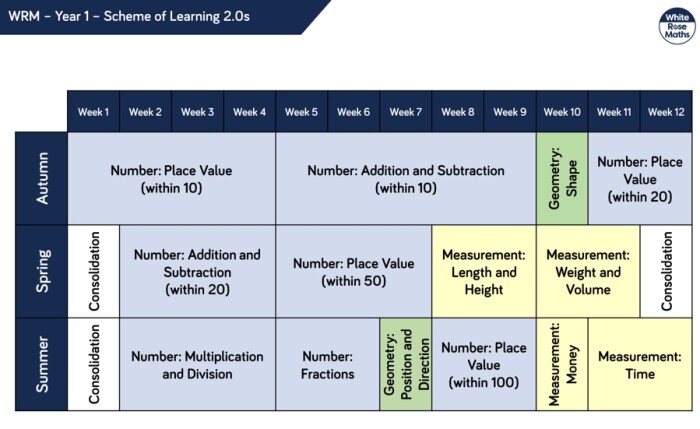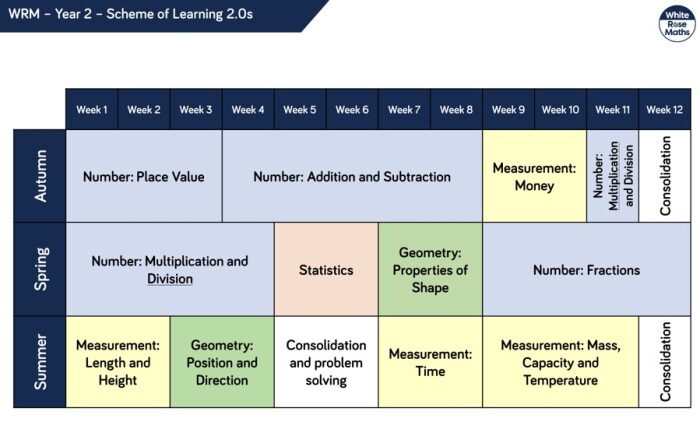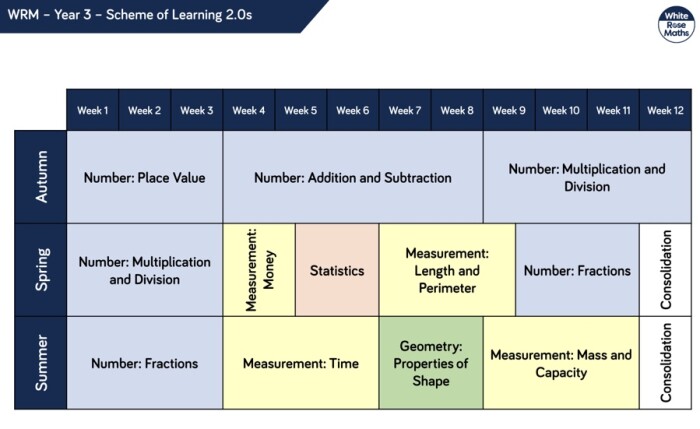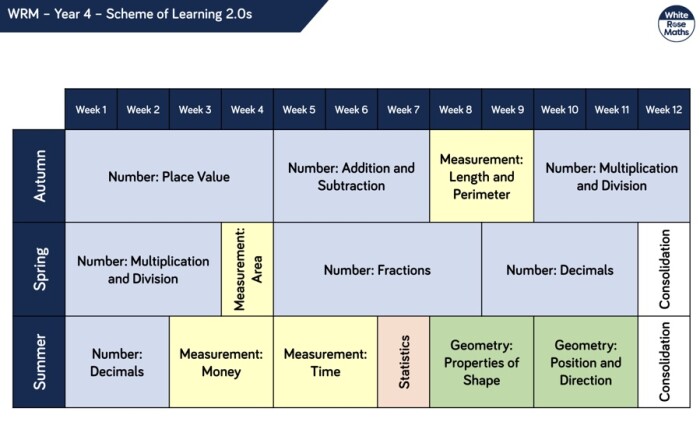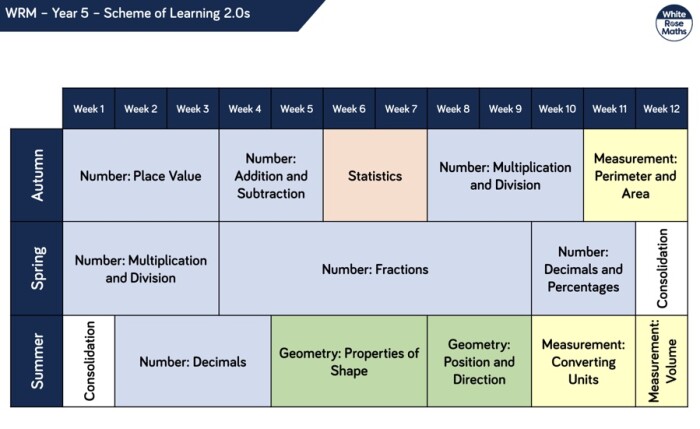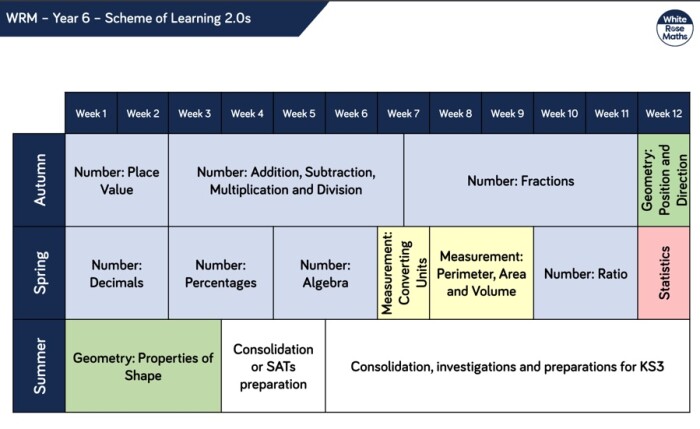Here at Mobberley, we believe that our maths curriculum will nurture a love for maths through a secure knowledge of key skills. We aim to develop confident mathematicians at problem solving and reasoning, while exploring links to the world around us with cross curricular maths. We aim to develop the children’s problem solving, resilience and reflective skills – skills that are easily transferable across the curriculum.
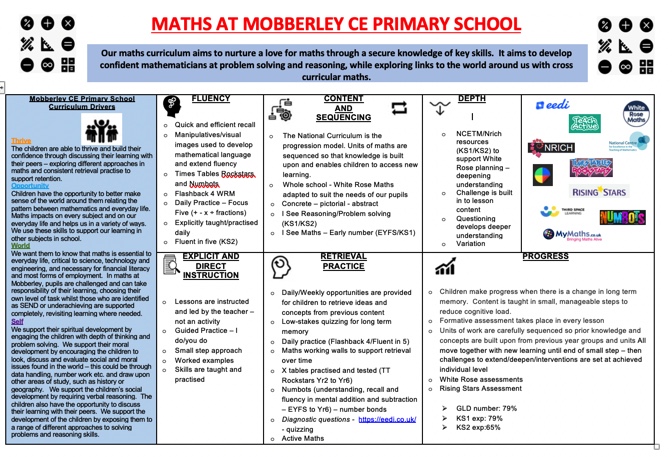
Intent
Why do we teach this? Why do we teach it in the way we do?
Mathematics teaches children how to make sense of the world around them through developing their ability to calculate, reason and solve problems.
Mathematics is essential to everyday life, critical to science, technology and engineering, and necessary for financial literacy and most forms of employment. A high-quality mathematics education therefore provides a foundation for understanding the world, the ability to reason mathematically, an appreciation of the beauty and power of mathematics, and a sense of enjoyment and curiosity about the subject.
We aim to support children to achieve economic well-being and equip them with a range of computational skills and the ability to solve problems in a variety of contexts.
At Mobberley, children are encouraged to make mistakes in a safe and supportive environment. They are supported to discuss these misconceptions with their peers and staff alike. Here at Mobberley, we place oracy at the heart of our learning through shared work and class discussions. Use of appropriate vocabulary is modelled throughout lessons by both staff and children, allowing everyone to ‘talk like a mathematician’. Once a child can articulate their understanding of a concept, they can truly begin to make connections within their learning.
At our school, the majority of children will be taught the content from their year group only. They will spend time becoming true masters of content, applying and being creative with new knowledge in multiple ways.
Aims
We aim for all pupils to:
- Become fluent in the fundamentals of mathematics, so that they develop conceptual understanding and the ability to recall and apply knowledge rapidly and accurately. including the varied and regular practice of increasingly complex problems over time.
- Reason mathematically by following a line of enquiry and develop and present a justification, argument or proof using mathematical language.
- Can solve problems by applying their mathematics to a variety of problems with increasing sophistication, including breaking down problems into a series of simpler steps and persevering in seeking solutions – including unfamiliar contexts and real-life scenarios.
Sequence & structure
How does the maths curriculum plan set out the sequence and structure of how we’ll teach the knowledge and skills?
We follow the National Curriculum, which sequences and structures the teaching into the year groups. In order to ensure this curriculum is covered in full and in manageable and logical steps, we follow the White Rose planning in EYFS, KS1 and KS2. The progression is clearly structured and available to see under via the Progression link at the bottom of this web page.
Implementation
Teaching and Learning, Content and Sequence
In school, we follow the National Curriculum and use White Rose Schemes of Learning as a guide to support teachers with their planning and assessment. We also supplement our work with ‘I See Reasoning’ and ‘I See Problem Solving’ from Gareth Metcalfe, as well as Classroom Secrets etc.
The calculation policy is used within school to ensure a consistent approach to teaching the four operations over time.
At the start of each new topic, key vocabulary is introduced and revisited regularly to develop language acquisition, embedding as the topic progresses and is highly visible on Maths Working Walls so the children can use them regularly and correctly when using verbal or written explanations in their work.
All lessons begin with a short assessment to support retrieval practice and develop long-term memory.
Children are taught through clear modelling and have the opportunity to develop their knowledge and understanding of mathematical concepts. Our approach incorporates using concrete objects, pictures, words and numbers to help children explore and demonstrate mathematical ideas, enrich their learning experience and deepen understanding at all levels.
Concrete – children have the opportunity to use concrete objects and manipulatives to help them understand and explain what they are doing.
Pictorial – children then build on this concrete approach by using pictorial representations, which can then be used to reason and solve problems.
Abstract – With the foundations firmly laid, children can move to an abstract approach using numbers and key concepts with confidence.
Children work on the objective at whatever entrance stage they are assessed as being at. Children can ACQUIRE the skill, APPLY the skill or DEEPEN the skill within the lesson.
Children move through the different stages of their learning at their own pace.
Children who have shown their understanding at a deep level within the unit, will have opportunities to apply these skills in a GREATER DEPTH activity. This should be challenging and ensure that children are using more than just one skill to be able to answer the mathematical problems.
Reasoning and problem solving are integral to the activities children are given to develop their mathematical thinking.
Resources are readily available to assist demonstration of securing a conceptual understanding of the different skills appropriate for each year group.
Children are encouraged to explore, apply and evaluate their mathematical approach during investigations to develop a deeper understanding when solving different problems/puzzles.
A love of maths is encouraged throughout school via links with others subjects, applying an ever growing range of skills with growing independence.
Children with additional needs are included in whole class lessons and teachers provide scaffolding and relevant support as necessary. For those children who are working outside of the year group curriculum, individual learning activities are provided to ensure their progress.
From the 2019/20 academic year onwards, schools in England will be required to administer an online multiplication tables check (MTC) to year 4 pupils. The purpose of the MTC is to determine whether pupils can recall their times tables fluently, which is essential for future success in mathematics. It will help schools to identify pupils who have not yet mastered their times tables, so that additional support can be provided. To support the children with their multiplication practice we use ‘Times Table Rockstars’ as an online and fun learning platform which also offer resources to be used in the classroom.
Impact
What are the outcomes of our curriculum for pupils?
Children at Mobberley CE Primary School understand and value the importance of Mathematics, this is evident through pupil voice and monitoring which takes place by the curriculum leader.
We want children to be confident in making rich connections across mathematical ideas as a result of developing fluency, mathematical reasoning and competence in solving increasingly sophisticated, contextual problems during their time at Mobberley CE Primary School. Our pupils will be able to apply their mathematical knowledge across the curriculum and to realise that mathematics has been developed over centuries. As our pupils progress further in their education, we intend for them to be able to understand the world, have the ability to reason mathematically and to have a sense of enjoyment and curiosity about the subject.
Through first quality teaching, guidance and effective feedback, children will:
- Clearly explain their reasoning and justify their thought processes
- Quickly recall facts and procedures
- Have the flexibility and fluidity to move between different contexts and representations of mathematics.
- Have the ability to recognise relationships and make connections in mathematics.
- Be happy, confident, articulate and autonomous learners with a life-long passion for learning.
- Leave our school at the end of KS2 prepared for the next step in their mathematical education.
Summative assessments takes place at the end of each term (White Rose Assessments in KS1 and Rising Stars PUMA in KS2 and KS1/2 SATs in May) and children’s progress and attainment is discussed with senior leaders in pupil progress meetings.
Formative assessment takes place on a daily basis and teachers adjust planning accordingly to meet the needs of their class. Teachers use formative assessment to evaluate the learning during a lesson. They may ask questions to check understanding, or scrutinise independent work in order to identify common misconceptions or share thinking. Such assessment allows teachers the flexibility to intervene in a lesson to remind, redirect or reteach pupils as required.
Yearly Overviews
EYFS
YEAR 1
YEAR 2
YEAR 3
YEAR 4
YEAR 5
YEAR 6
Cross Curricular Maths
At Mobberley Church of England Primary School, we know that maths is not just a one hour lesson that we do each day. Maths impacts on every subject and on our every day life. Maths helps us in a variety of ways and we have used these skills to support our learning in other subjects in school. Take a look at how useful our maths skills have been this year.
Science
Year 6 have been finding out the size of the air capacity in their lungs and whether ‘If you are taller, do you have a larger lung capacity?’. They used straws, and water and used maths skills such as measuring their heights, used subtraction to find their lung capacity, found the mean (average) of their lung capacities and used data handling – creating a line graph to show their findings.

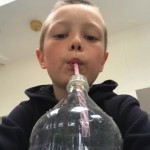
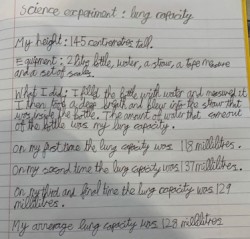
I did the science experiment about lung capacity with my family. Here are my findings: Anya 153 cm tall, lung capacity 250ml. Seth 123 cm tall, lung capacity 200ml. Mum 157 CM tall, 360ml lung capacity. Dad 190cm tall, lung capacity 450ml. These results told me that the taller you are the larger your lung capacity.
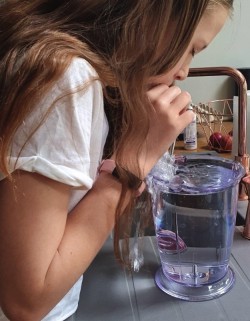
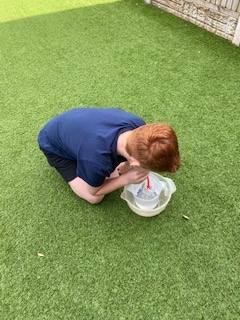
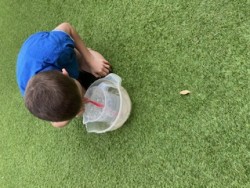
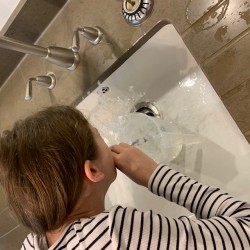
Modern Foreign Languages
In MFL (French and German lessons) the children have been learning about numbers and seasons:
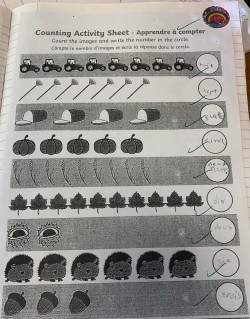
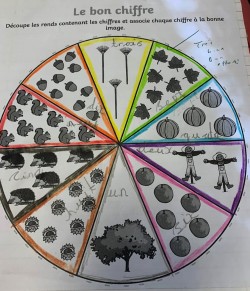
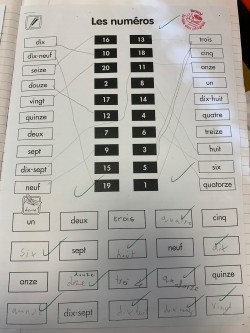
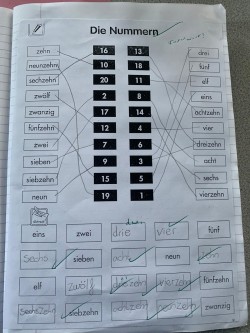
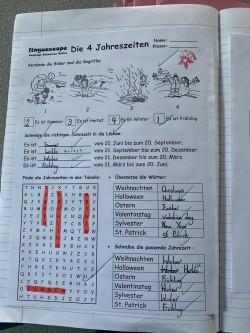

History
Year 6 have been learning about the Ancient Maya number system. Did you know that they counted in BASE 20 not Base 10 as we do?
Here are some examples:
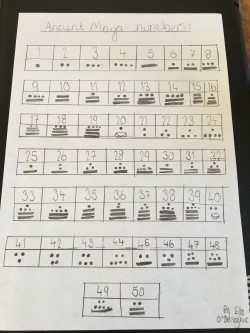
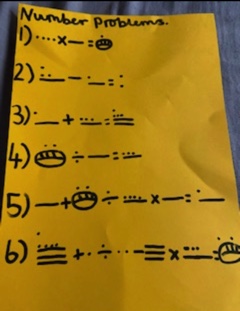
White Rose Maths

As a school, we have decided to follow White Rose Maths. The White Rose scheme of learning is designed to support a mastery approach to teaching and learning, as well as to support the aims and objectives of the National Curriculum. The White Rose scheme has number at its heart and a lot of time is spent reinforcing number to build competency. It also provides opportunities to build reasoning and problem-solving into each lesson. White Rose believes that all children, who are introduced to a concept, should have the opportunity to build on their abilities by following a concrete-pictorial-abstract approach.
Progression
Please follow the link below to see National Curriculum Progression and how this links with White Rose Maths.
Please see how the White Rose Maths curriculum links to the Key Stage 1 and Key Stage 2 National Curriculum, and how it progresses through the topics.
The progression helps class teachers see what to cover in their year group and what is taught in other years.
Concrete – Children should have the opportunity to use mathematical objects to help them envisage what written numbers represent.
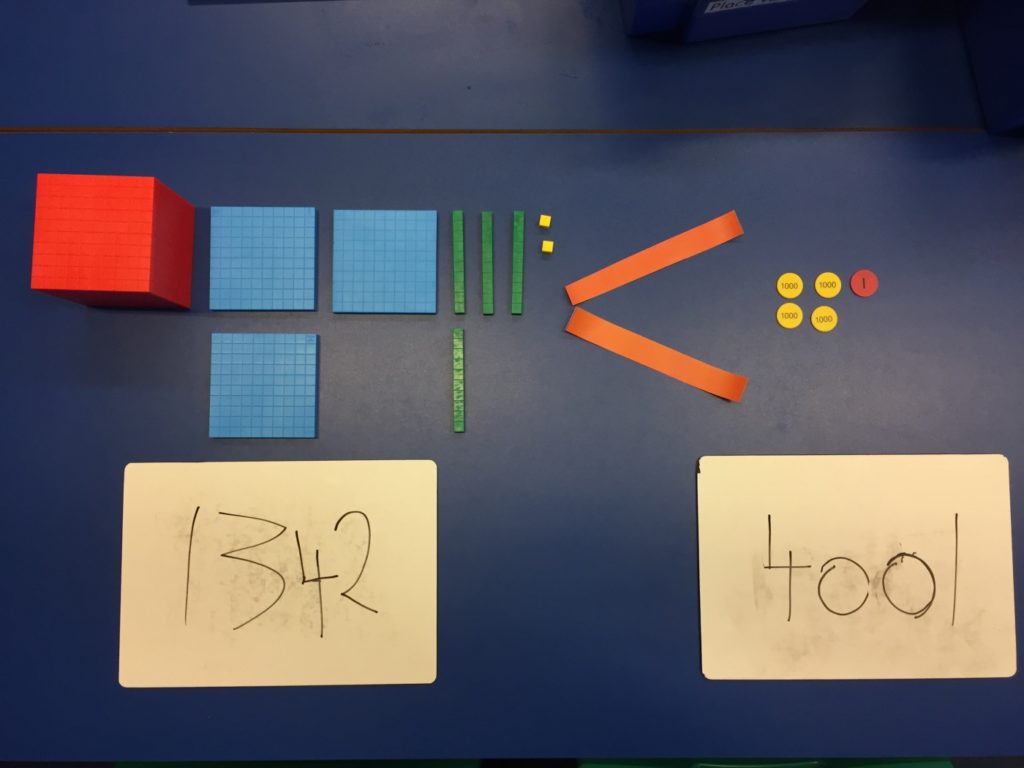
Pictorial – Children should have the opportunity to use pictures as representations to continue to support them in visualising what written numbers represent.
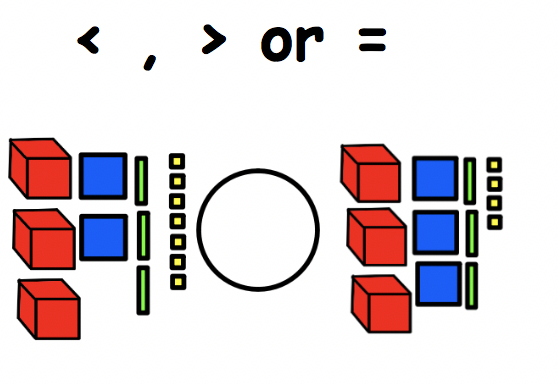
Abstract – Abstract learning is the use of digits and words to represent numbers.
Calculation Policy
Our school calculation policy shows how abstract learning builds upon a good foundation of concrete and pictorial methods.
Times Tables and Number Skills at Mobberley
To supplement our learning here at Mobberley, children have access to various learning platforms including Times Table Rock Stars and NumBots.


By Year 4, children should be able to recall their multiplication facts up to 12 x 12. To help them develop these skills, children can log on to TTRS using their username and password.
On Times Table Rockstars, pupils can practice their tables. They are then able to improve their Rock Speed and climb the Rockstar ranks! The online games reward children with virtual coins for each correct answer, which they enjoy spending on upgrading their personal rock avatar.
NumBots is an online game and playing little and often will significantly improve your child’s recall and understanding of number bonds and addition and subtraction facts. Children can access NumBots using their username and password for TTRS.
Children access these both at home and in school.
IF YOUR CHILD HAS FORGOTTEN THEIR LOGIN DETAILS. PLEASE SPEAK TO THEIR CLASS TEACHER WHO CAN REMIND THEM!
 Active Maths (formally Maths of the Day)
Active Maths (formally Maths of the Day)
At Mobberley, we celebrate the benefits of active learning in the classroom through our use of Active Maths in our classrooms. The benefits are widely acknowledged in a variety of areas of the curriculum. Not only does it allow core curriculum subjects such as maths to be taught in a fun and engaging way, but also increases physical activity in children.
MyMaths
MyMaths

Our school has acquired an online maths programme called MyMaths that we would like to share with you. Below you will find key information about the scheme and how you can get involved. We hope that you and your child will love the games and activities.
What is MyMaths?
MyMaths is an interactive online teaching and homework homework service written by experienced teachers for all the UK National Curricula. Developed for teaching, practising and assessing children’s maths fluency across the school. Each interactive lesson is paired with online homework. MyMaths
- Develops children’s skills, confidence and fluency in maths through lessons, homework tasks, and games
- Provides an important consolidating link between school and home, with access so parents can review their child’s progress
- The homework set is automatically marked so teachers are able to review children’s progress.
- The MyMaths resources are available 24 hours a day, 7 days a week from school or from home.
Assessment
The comprehensive assessment manager provides in-depth analysis, helping teachers to identify gaps in children’s learning – and for children to see their progress.
Accessing MyMaths via an iPad
If accessing MyMaths from an ipad, it does require Adobe Acrobat. However you can download a free app called Puffin to access it. Pupils need to access MyMaths from Google chrome and not safari.

Logging in:
USER NAME: mobberley
PASSWORD: divide27
Children then have to log in with their own personalised login details
Click on the link below to get started!
Maths Action Plan 2019 – 2020
MATHS GAMES
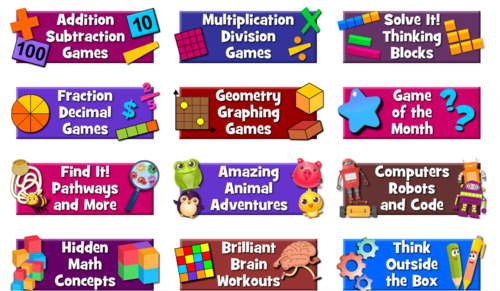
Maths Playground
More games for children to access here at Math playground. Problem solving, reasoning, arithmetic as well as shape, space and measure games can be found here.
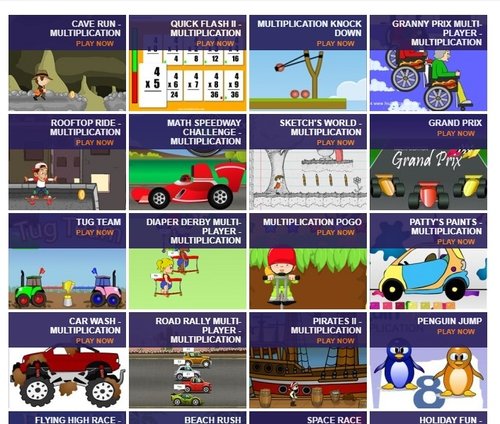
Multiplication Games (CLICK HERE)
A selection of free games for all abilities to test their times table knowledge.


